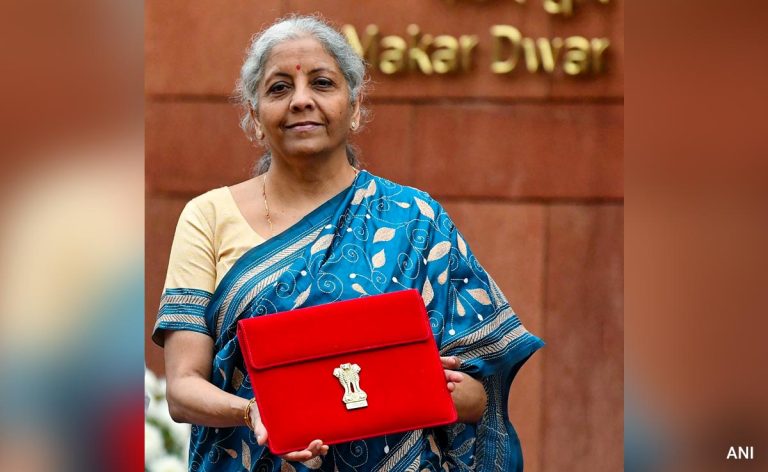The hospitality sector is experiencing a resurgence, driven by favorable demographics, strong domestic demand, and increased investments. Industry stakeholders are now looking to the Union Budget 2024-25 with optimism, anticipating government measures to further stimulate growth. Since the pandemic, the Indian hospitality and travel sector has consistently expanded. To maintain this momentum, the industry is advocating for “infrastructure” status in the upcoming Union Budget 2024.
Key Demands:
“The recent travel boom presents a golden opportunity, but to truly unlock our potential, we need the government to strategically recognize hospitality as an industry and grant infrastructure status to hotels exceeding a certain bar. This will catalyze access to long-term financing at lower interest rates, streamlined regulations for faster project execution, and potential tax breaks for the industry. This isn’t just about filling rooms – it’s about transforming hospitality into a magnet for investment.”
“Infrastructure status creates a win-win: it incentivizes developers, lowers the cost of capital for new projects, and ultimately fosters a more vibrant hospitality sector that contributes even more to our nation’s GDP, job creation, and foreign exchange earnings.”
Nilisha Ghuliani, Vice President, Clarks Exotica Convention Resort and Spa :
“Tax Rationalization is important : Will just give an example, a room night costing INR 10,000 falls under the 18% GST rate, while an off-season rate of INR 7,000 falls under the 12% GST rate.
A transformative reduction of GST from 18 percent to a globally competitive 12 percent is not only crucial for enhancing India’s allure in
international tourism but will also greatly help in simplifying the Compliance processes. So we become globally competitive if this aspect is looked into.
GST credit for hotel construction : The absence of GST credit for hotel construction poses a significant obstacle requiring urgent resolution to unlock the industry’s vast potential
Approvals to be simplified for efficient Growth : The hotel industry faces a cumbersome and costly challenge due to theneed for numerous licenses. Streamlining this process by implementing a single-window system for all approvals, coupled with a time-bound framework, will significantly boost efficiency and economic viability.
This simplification will foster swift progress and expansion in the hotel sector
Hospitality Industry should be incentivised in case they adopt Sustainable practices: Going Green is Expensive – The Government should support the Industry in this movement
Streamlining GST Registrations for Online Travel : Online travel agents in India are burdened by the requirement to obtain state-wise GST registrations, which involves establishing a physical presence in each state and incurs high administrative costs. Allowing OTAs to register in states through their central head office would alleviate these burdens, streamline operations, and enhance efficiency. This change is also necessary to ensure a level playing field with international competitors not subject to similar regulations.
Skill Development : Last but not the least some initiatives for skill development and trainings programmes should be available for Hospitality Employees to help Hotels/resorts enhance their Service Standards – some subsidies could be granted to Hoteliers who are ready to invest in associate training & development.”
Gaurav Mittal, Director & CEO, Antarctica Equipment Private Limited:
“As we approach the 2024 budget, it’s time for the Government to recognize the essential role that cafes, bakeries, confectioneries, sweet shops, bakery cafes, and ice cream parlours play in our hospitality industry.
To support these businesses in delivering top-notch services and high food quality, they need help setting up the right infrastructure. Given the ongoing recovery from the pandemic, a 15% capital subsidy on essential machinery, equipment, and temperature-controlled cabinets would greatly enhance food safety and quality.
Lowering the GST from 18% to 10-12% would provide much-needed relief. Financial support programs, including low-interest loans and microfinance options, are vital for helping small and medium enterprises expand and innovate.
Simplifying regulatory processes and offering compliance assistance will further encourage growth and ensure food safety. Streamlined processes could significantly increase compliance rates and improve food safety standards.
These measures will drive growth in the cafe, bakery, Sweetshops, confectionary and ice cream industries, fostering innovation and enhancing customer satisfaction. Supportive government policies can create a thriving ecosystem for these businesses, ensuring their continued contribution to the Indian economy.
Pushpendra Bansal – COO- Lords Hotels & Resorts:
Budget 2024 is projected to be instrumental in supporting the country’s economic expansion.
The hospitality sector is advocating for various changes that may have an impact on pricing in the future. Granting infrastructure status to the hotel industry could lead to more affordable financing, potentially reducing costs for new developments.
At present, various services in hotels and restaurants are subject to different GST rates. A uniform 12 percent rate should be applied to all categories.
Government should also provide incentives to invest in sustainable tourism
Rajesh Magow, Co-founder & Group CEO, MakeMyTrip :
The Travel and Tourism industry has been growing at a healthy rate post-pandemic. The upcoming Union Budget 2024-2025 offers an opportunity for the Hon’ble Finance Minister to build on this momentum. Strategic investments in this sector can unlock economic opportunities, boost employment, and enhance the competitiveness of India’s tourism landscape.
- The tiered GST based on hotel room tariffs can lead to price disparities as hotels adjust room rates based on demand and peak season rates. For example, a room night costing INR 10,000 falls under the 18% GST rate, while an off-season rate of INR 7,000 falls under the 12% GST rate. We urge the Hon’ble Finance Minister to consider a uniform GST rate of 12% on hotels. This will greatly help simplify the compliance processes.
- Online travel agents (OTAs) in India are struggling with the challenging requirement of obtaining state-wise GST registrations. The current regulation compels OTAs to establish a physical presence in each state even when it is not required, leading to high administrative costs. Allowing OTAs to register in State(s) through their central head office would significantly alleviate these burdens, streamline operations, and enhance efficiency. Furthermore, this requirement puts national OTAs at a disadvantage compared to international competitors who are not subjected to similar regulations.
- We urge the Hon’ble Finance Minister to remove disparities between ecommerce operator and ecommerce suppliers in domestic market. For example, currently, a customer pays a 5% GST charge when booking a non-AC bus through an ecommerce platform. This charge is zero for a direct booking from bus operator irrespective whether it is done in online or offline mode. This is against the spirit of digital India.
- Travel agents, tour operators, and authorized dealers are required to collect Tax Collected at Source (TCS) on Overseas Tour Program Packages (OTPP) and Income Tax Act allows taxpayers to use TCS credit when calculating their advance tax, it does not currently permit applying this credit against income tax under ‘Income from Salaries’. We urge the Hon’ble Finance Minister to allow TCS credit under Section 206C(1G) to be used against salary income tax, thereby providing necessary relief to taxpayers.
- Addressing the challenge of overcrowding in popular destinations requires innovative and sustainable solutions, and the Hon’ble Finance Minister could encourage corporations to invest their CSR funds in developing and improving tourist destinations. This approach can lead to developing new attractions and upgrading existing ones while offering tax benefits to the corporations involved. A weighted deduction under Income tax along with input tax credit under GST on CSR funds deployed to improve tourist destinations will garner larger participation from the private sector. Such a symbiotic relationship not only helps preserve tourist sites but also ensures all-around sustainable development.
- Offering tax incentives to hotels and homestays for adopting sustainable practices aligns with India’s commitment to the United Nations Sustainable Development Goals, particularly SDG 11 (Sustainable Cities and Communities) and SDG 13 (Climate Action). By offering tax incentives that promote eco-friendly measures in the tourism sector, such as energy-efficient lighting, water-saving devices, and waste-reduction practices, the Hon’ble Finance Minister will be encouraging the industry to contribute to these global goals.”
Sanjay Ghare, Co- Founder & CEO, Vervotech:
“India’s robust growth projection of over 7% for FY24 presents an opportunity for a well-calibrated budget. While improved fiscal deficit and substantial tax revenues offer space for spending, uneven growth across sectors demands a focus on demand-boosting measures.
Consumption Concerns: Consumption, particularly in rural areas, remains sluggish despite healthy headline growth. This is likely due to a combination of factors:
– High Inflation: Persistently high inflation, especially for essential food items, erodes purchasing power.
– Weak Consumer Confidence: Recent surveys indicate a moderation in consumer confidence, translating to lower spending.
Demand Boosting Options:
– Tax Relief: Increasing the income tax exemption limit or reducing tax rates could put more money back in people’s pockets.
– Rural Employment Schemes: Increased budgetary allocation for programs generating employment in rural sectors can directly address the consumption slowdown.
– Labor-Intensive Sectors: Tax breaks or other incentives for labor-intensive industries like textiles and toy manufacturing can stimulate job creation.
– Skill Development: A nationwide skill survey, coupled with incentives for industry-academia collaboration, can bridge the skills gap and improve employability.
The Path Forward:
While fiscal consolidation remains essential, the upcoming budget should prioritize policies that stimulate demand and address the concerns of uneven growth. This may involve a calculated increase in spending, focused on:
– Measures directly impacting rural income and consumption.
– Investments in skill development and sectors with high employment potential.
The government can leverage solid economic fundamentals to create a more inclusive growth story. A balanced approach, prioritizing demand-side interventions, can help achieve this goal”.


